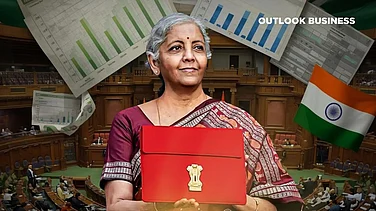As the budget day comes close, there has been a wide set of expectations centered around relaxation in the fiscal consolidation path and a pivot towards welfare spending as against capex. However, Goldman Sachs, in its recent report, stated that there is "limited fiscal space" given the country's high public debt level.
Besides, India’s infrastructure upgrades have generated long-term positive growth effects that policymakers might be reluctant to give up, the report said.
The investment bank believes that the general government will adhere to the fiscal deficit target of 5.1 per cent of GDP for FY25, and might even aim for a slightly lower figure.
Any allocation towards welfare spending may not require cutting capital expenditure, considering the recent higher-than-expected dividend transfer received from RBI.
As Finance Minister Nirmala Sitharaman sets out to present her 7th consecutive budget, there is a chance that the long-term economic outlook might get more inclination.
"We see an emphasis on job creation through labor-intensive manufacturing, credit for MSMEs, continued focus on services exports by expanding GCCs, and a thrust on domestic food supply chain and inventory management to control price volatility," the investment bank said.
The budget is also likely to lay out a path for the future of public finance in India, entailing- a) a roadmap for public debt sustainability, and b) green finance-the role of public finance in balancing India’s energy security vs. transition needs, the firm further added.
According to Goldman Sachs, government fiscal policy has restrained growth since FY22. This is expected to continue in FY25 and FY26 due to the central government's fiscal consolidation target.
Meanwhile, capital expenditure, with a robust CAGR of around 31 per cent from FY21 to FY24, has already boosted growth.
This is expected to continue in FY25 but welfare spending is likely to remain a negative factor.
































